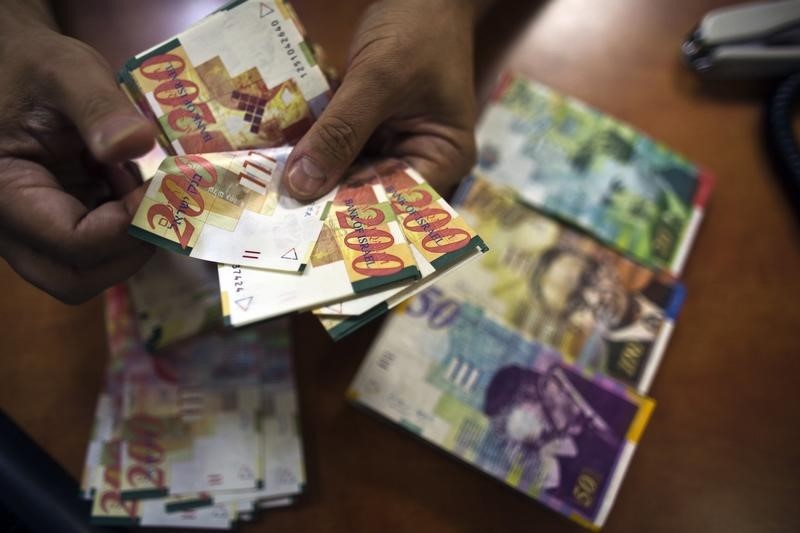By Tom Westbrook and Alun John
SINGAPORE/LONDON (Reuters) -Currency markets were bracing for remarks from Fed chair Jerome Powell on Thursday, waiting to see whether he would push back against the rally in U.S. Treasuries that has helped give support to the euro and pound.
The euro was last down 0.1% at $1.06985, but not far from Monday’s near two month peak of $1.0765, it is also doing well on the crosses at 161.6 yen, around a 15-year high.
Sterling was up a touch at $1.2291.
The day’s main event is still to come, with Powell due to speak at 1900 GMT.
“The topic of the day is Powell, Powell, Powell. We’ve got two-year yields below 5%, we’ve got the 10 year around 4.5% what’s the response?” said Simon Harvey head of FX analysis at Monex Europe.
“Is this the bottom of the range for the U.S. Treasury curve or have we got further to go? The nature of markets is they will keep testing this until we do get some resolute pushback,” he added.
The benchmark was last 4.531%, having dropped from a mid October peak above 5%, with bonds supported by a combination of factors last week. Those included the U.S. Treasury’s lower than expected borrowing forecast for the fourth quarter and weaker-than expected U.S. jobs data reinforcing expectations the Fed is done with rate hikes.
“This is going to play out in currencies where you’ve seen a lot of pressure from yields – euro/dollar specifically – the fundamentals of the European economy don’t warrant euro dollar trading at current levels, so if we do get push back from Powell tonight that’s where there will be the most pain,” said Harvey.
The yen was also under pressure again on Thursday, with the dollar above 151 yen, heading back towards the 151.73 it reached last week after the Bank of Japan tweaked its ultra-loose monetary policy less than traders had expected.
That further increased fears Japanese authorities would intervene to support the currency, and as a result investors see selling yen against the euro as safer than risking intervention in dollar/yen.
Bank of Japan Governor Kazuo Ueda, said on Thursday the BOJ would keep its policy of yield curve control, and negative rates, “until necessary to hit 2% inflation in a sustained manner.”
Elsewhere, falling oil prices offered welcome relief for the euro and pound, but held back commodity-linked currencies.
The Australian dollar was at a one week low of $0.6396, and the Canadian dollar was also under pressure at C$1.3792 per dollar, while Norway’s crown briefly weakened past 12 per euro overnight, its softest since May.
“Both (the Canadian dollar and the Norwegian crown) have been undermined in part by the sharp adjustment lower for the price of oil,” said MUFG analysts in a note.
slipped in anticipation of further rate cuts after data showed Chinese consumer prices fell in October. [CNY/]
“There are some growing market expectations for further rate cuts by the Chinese central bank given soft inflation prints and still narrow economic recovery,” said Michael Wan, currency analyst at MUFG in Singapore.
Read the full article here



